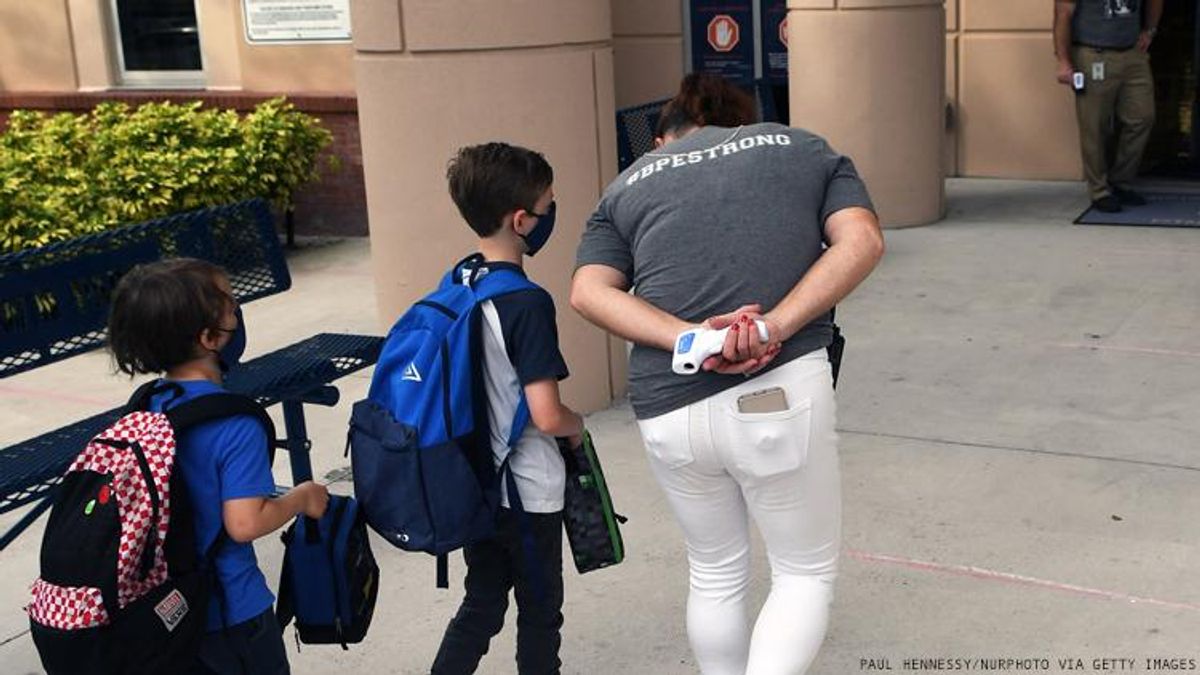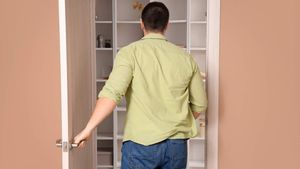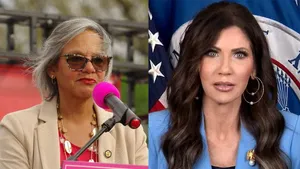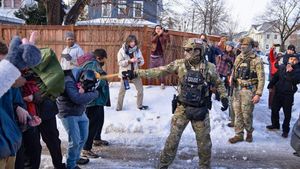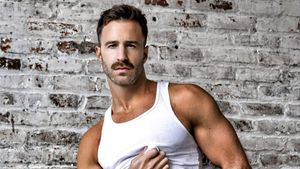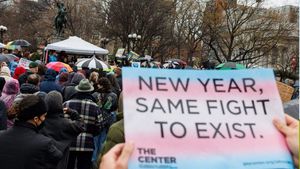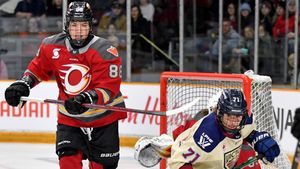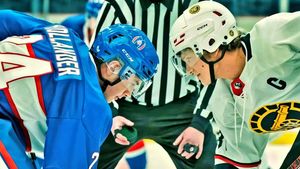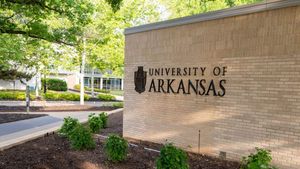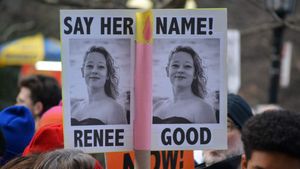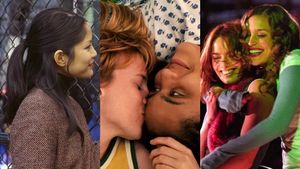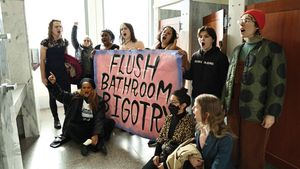(CNN) -- An elementary student in Georgia has tested positive for monkeypox, raising questions about how concerned schools should be about the small risk of the virus spreading among children as they head back to class.
Monkeypox risk is low for school-age children. As of Thursday, more than 16,000 people in the United States have confirmed or probable monkeypox infections, and almost all are in adults. But as classrooms reopen this fall, K-12 schools across the United States are on alert for possible cases.
"They're keeping a close eye on it in their states and they're paying attention to what their governor and their state departments of health are saying -- and they're keeping it on their radar," Noelle Ellerson Ng, associate executive director of advocacy and governance for the School Superintendents Association, told CNN.
Amid back-to-school season and an ongoing global outbreak of monkeypox, the U.S. Centers for Disease Control and Prevention emphasizes in guidance for K-12 schools and child care centers posted this month that "the risk of monkeypox to children and adolescents in the United States is low" right now, but schools should follow their everyday protocols to reduce the transmission of any infectious disease.
"Does every school in the nation have monkeypox policy? No. Most schools in the nation have infectious disease policy and regulations," Ng said.
"They're going to continue to follow those infectious disease policies and regulations, and the CDC guidance is just a layer on top of that. It's information that they can review, consume and integrate as appropriate," she said. "School nurses are aware of the guidance. And the infectious disease protocols that were already in place remain in place."
How one school is responding to a monkeypox case
On Tuesday, the Newton County School System in Georgia announced that it was notified that one student at Mansfield Elementary School had tested positive for monkeypox virus and another student at Flint Hill Elementary School was being tested.
"School district officials notified parents at both schools via School Messenger call this afternoon, and parents of students considered to be close contacts in accordance with CDC criteria will receive separate communications advising them of next steps," the school system announced in a statement Tuesday.
"NCSS facilities employees will thoroughly clean and disinfect classrooms and other areas at both schools this afternoon to ensure ongoing safe and healthy learning and work environments for students and staff."
The CDC notes in its guidance that if someone with monkeypox has been in a school or child care setting, "the setting should follow their everyday operational guidance to reduce the transmission of infectious diseases and add enhanced cleaning and disinfection," as well as support their local health department to conduct contact tracing and provide information about how to prevent the spread of the virus to staff members, volunteers, students and parents.
"Schools will continue to practice their cleaning and disinfection practices, and they just want to be mindful of encouraging staff and students in the community, in general, to continue good hygiene," Ng said. "People are always welcome to continue to wear masks to prevent the spread of the germs, and just be mindful that if you have a child or anyone who shows symptoms, stay home."
How monkeypox spreads
Classrooms can be a "germy environment," said Lori Tremmel Freeman, chief executive officer of the National Association of County and City Health Officials.
"Because of the type of infection that it is, the virus is spreading slowly by contacts, and now we're starting to see there are child cases," she said.
At least 17 confirmed and probable monkeypox cases among children ages 15 and younger have been reported to the CDC, as of last week. The first two cases among children reported in the United States involved a California toddler, and the other involved an infant who is not a U.S. resident. The two cases were unrelated and probably the result of household transmission.
The monkeypox virus can spread through close personal contact, such as skin-to-skin contact, direct contact with a monkeypox rash or scabs from an infected person or direct contact with their respiratory secretions. Although the risk is low, there is also some potential for the virus to spread through contaminated objects or surfaces like clothing, bedding or towels that were used by someone with monkeypox.
"And in pre-schools, it's a breeding ground for that sort of infectious spread. So, those are concerning because, in the schools, it's harder to lock down the virus without introducing some more mitigation measures," Freeman said. "Basic cleaning right now is all that is recommended, but when you have an outbreak situation within a school, you're going to want to do in-depth cleaning and have other recommendations in place to limit touching, hugging, and what kids do."
The CDC notes in its guidance for schools and child care centers that monkeypox vaccination is recommended for people who have been exposed to the virus but "there is no need for widespread vaccination for monkeypox among children or staff at K-12 schools or early childhood settings."
Donna Mazyck, executive director of the National Association of School Nurses, called the CDC guidance "helpful" in an email to CNN on Wednesday.
"The CDC guidance on monkeypox for schools is helpful. In addition, CDC is monitoring the spread of monkeypox closely and updates will be shared," Mazyck wrote. "School nurses stay updated on CDC information about monkeypox and other infectious diseases. School nurses communicate with local and state health authorities."
She added that parents should keep children home if they have a fever and rash, and if they suspect their child might have monkeypox, talk to their child's doctor.
"Know that several illnesses can cause a fever and rash," Mazyck wrote, adding, "Avoid blaming or excluding children based on fear."
Children or staff who have been exposed to a person with monkeypox "do not need to be excluded from an educational setting in most cases," according to the CDC, but in some cases, if contact tracing may not be possible and there was a high degree of exposure, the person's participation in certain activities may be limited.
"Activities that involve prolonged skin-to-skin contact will be higher risk. Kids involved in wrestling or tackle football, for example, would be higher risk than if they did cross-country running or swimming. That doesn't mean children shouldn't participate in contact sports. Again, the incidence of monkeypox in kids is currently so low that this shouldn't be a major concern," said CNN medical analyst Dr. Leana Wen, an emergency physician and professor of health policy and management at the George Washington University Milken Institute School of Public Health.
"Some students in school are sexually active," Wen told CNN. "My concern would be for those students, especially those with multiple partners or engaging in sexual encounters with people they don't know well, as it's through such intimate activity that monkeypox is primarily spread."
'I'm not worried'
Overall, there have not been many monkeypox infections in U.S. children and younger teens.
"I'm not worried about my two young kids, ages 2 and 5, getting monkeypox because, thus far, it has not been spreading in children in the United States," Wen said.
"There are a couple of isolated reports of kids with monkeypox, but no reports of kids transmitting to each other. The incidence of monkeypox among kids is currently so low that I am not worried about spread while my kids are in their preschool and kindergarten," Wen said. "This could change if outbreaks start happening in children, but that's not what we have seen thus far."
Since the monkeypox outbreak began in May, most cases have occurred among men who have sex with men. But clinicians stress that it is not classified as a sexually transmitted disease and anyone can catch the virus through close skin-to-skin contact. In the case of children, according to the CDC, this could include "holding, cuddling, feeding, as well as through shared items such as towels, bedding, cups, and utensils."
"School/childcare program practices do not need major changes," Mazyck of the National Association of School Nurses wrote. "If a student or adult in the school is diagnosed with monkeypox, schools follow public health recommendations for care and for close contacts."
The-CNN-Wire
™ & © 2022 Cable News Network, Inc., a Warner Bros. Discovery Company. All rights reserved.
